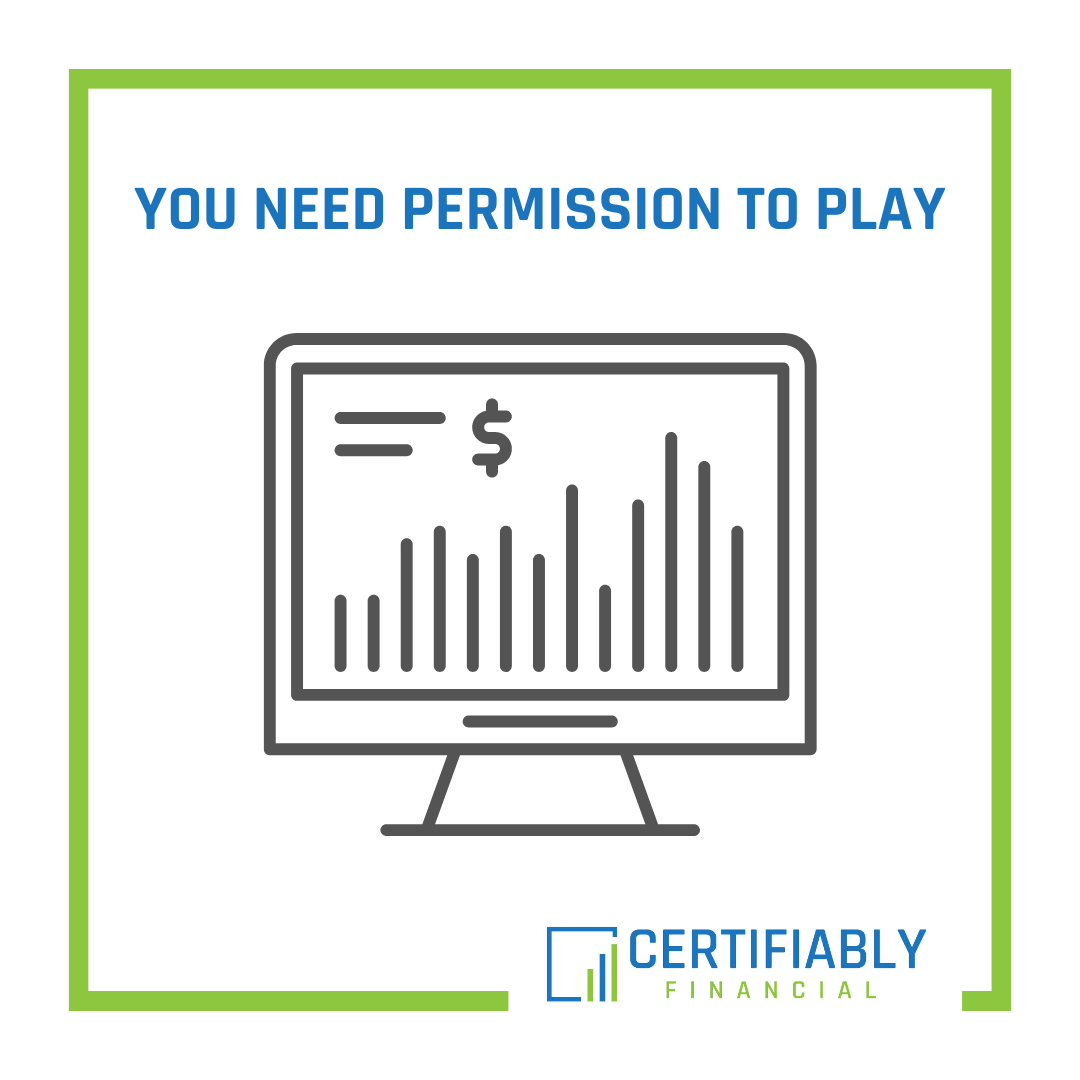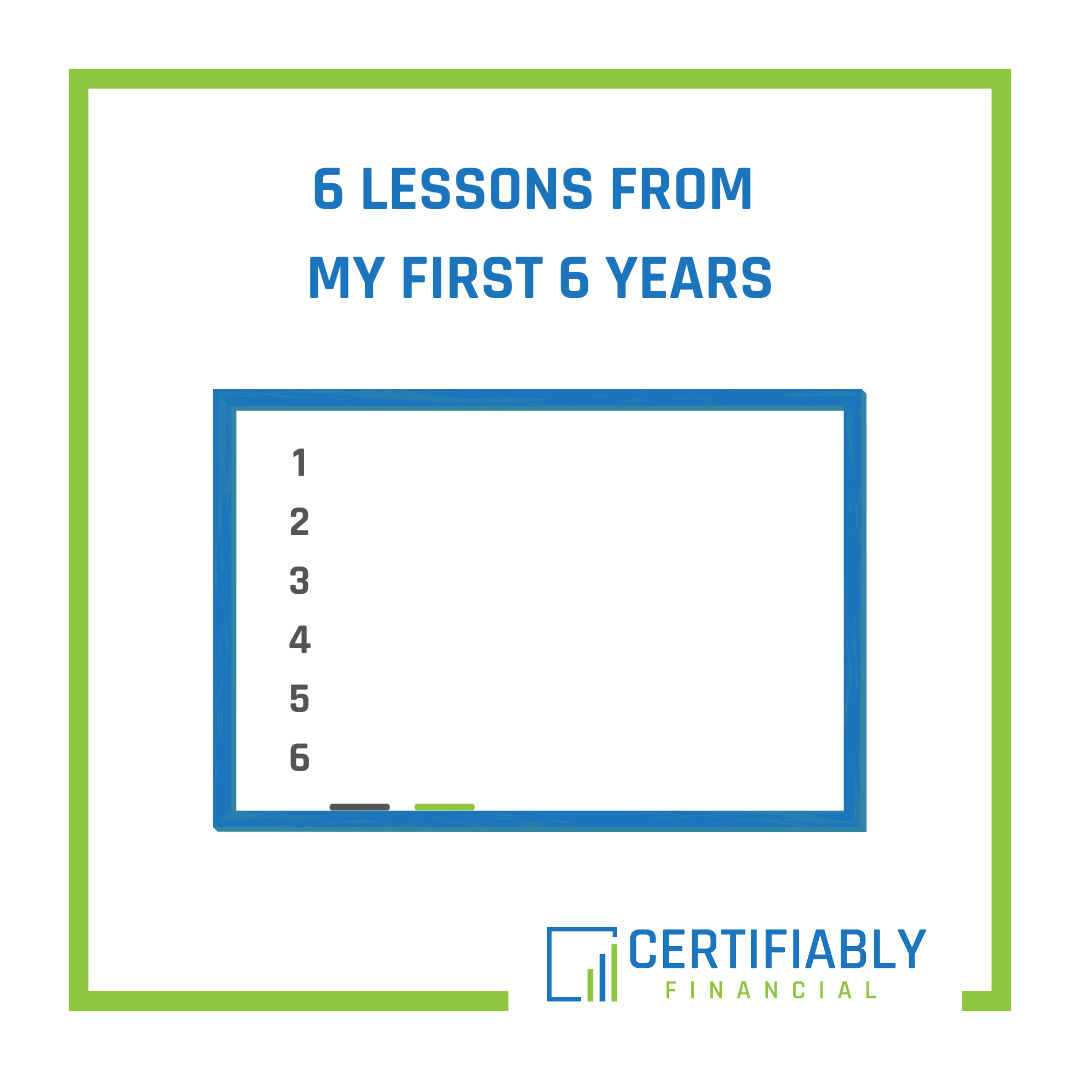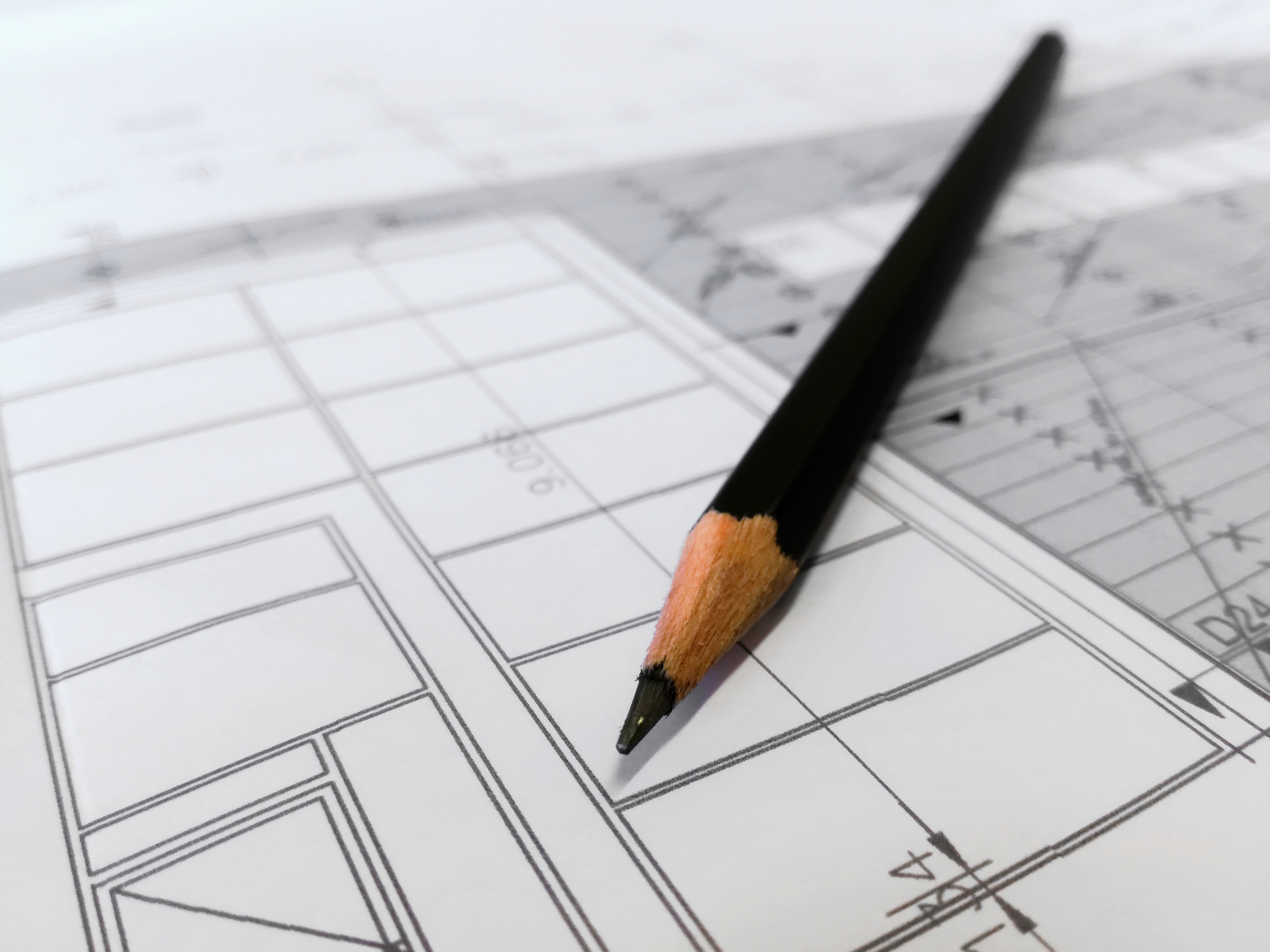“Be fearful when others are greedy, and greedy when others are fearful.” – Warren Buffett
Financial Foundation
6 Lessons from My First 6 Years
My first day working in a financial planning firm was Monday, May 12, 2014. That was the first day of my internship with the firm that I still work at today 6 years later. I was just like most other people going into college. I had no idea what I wanted to do, but I thought I wanted to major in business. I went through my first two years of college taking classes and narrowing down my interests until I came down to operations and supply chain management and finance.
What’s Next?
2 minute read
Once you have an adequate emergency fund in place, the proper insurance coverages in place, and are saving adequately for retirement, it’s time to start thinking about some of the more technical questions that you may have and begin adding some of the details to your financial structure. Sure, you could live in a box-shaped house with the basics that provides shelter and keeps you safe, but most people want more than that. Hopefully you want more for your financial life as well.
Next Steps
Painting, adding rooms and amenities, and putting the finishing touches on your financial plan can be difficult to think through. Often, people aren’t even sure what questions to ask. Should I pay down debt more quickly or should I save more? Which debt should I pay down first? Is it better to pay down my student loans faster or my mortgage?
Additionally, this means that you need to start thinking about your long-term goals. Now that you have a solid financial foundation in place, ask yourself why you went through the trouble of doing so and what you want your money to accomplish for you.
Are you looking for security? Do you want to help others? Buy a new house? A new car? Travel? Pay for your child’s college education? Defining and prioritizing your goals will help you figure out what the next steps are that you need to take.
What are the things that you’re not even considering that you should be? There are a lot of the more technical aspects of financial planning that most people don’t even know about so they never have a chance to work on them. This is when having a financial planner on your side can be valuable.
Continuous Process
Maintaining a home is an ongoing process that doesn’t stop once the contract is signed and the home is yours; this is just the beginning. A home requires a lot of maintenance, repairs, and tidying up to keep it in good condition and make sure that all parts are working together properly. The same goes for your personal financial life.
If you’ve taken the time to get everything in order, then don’t wait so long to revisit it. Our lives constantly change which almost always directly affects our personal finances, whether we know it or not. Financial planning should be seen as an ongoing process that is revisited often to make sure that your financial life is working together the way that it should and so that it will help you to reach the goals that you’ve set for your money.
Start Simple
3 minute read
Most people have never received personal finance education and have no idea where they should start to begin creating a better life for themselves. The great thing is that you don’t have to fix everything all at once. Starting with anything and progressing incrementally should be the goal. Hopefully this post helps you figure out where you are today and what the next steps are that you can take to begin making progress in your financial life, which hopefully spills over into all other areas of your life as well.
Get Organized
Getting organized is the most basic, but also potentially most daunting task for some. Depending on how in-tune you are with your financial life (and how organized you are in general), this could be a time-consuming project or could just be some tidying up.
I’m very organized in all aspects of my life because I find that it makes things easier for me, helps me to be efficient and accomplish my goals, and relieves stress. Organizing your financial life can do the same things for you and can be your first step towards financial freedom. I’ve already written about this before, so I’ll list the three basic steps that you can take to help you start easing some stress and become more aware of your current personal financial situation:
- Figure out where you’re going to store your documents and passwords
- Gather your login information and important financial documents
- Evaluate your financial situation and set goals
With your financial life organized you’ll be able to evaluate what your current financial situation looks like and where there’s room for progress to make sure that you reach your goals. You can click here to see a list of things that you may want to gather to help you understand where you are and figure out what you need to do to get where you want to be.
Evaluate The Foundation
Once you’ve got your financial life organized, it’s time to evaluate where you are. Three of the most basic, but also most vital things that you can do to create a solid financial foundation are to establish an adequate emergency fund, make sure that you have the proper insurance coverages in place, and pay yourself first by saving for retirement and other goals before spending any of your income. If you have a significant amount of debt that you’re paying off, then you can evaluate whether you should save more or pay it off more quickly.
The process is much simpler than many make it out to be and there’s no need to complicate it more than necessary. Consistency is the hardest part for many in making changes to their personal finances. When something pushes you off track it’s best to get right back to it rather than let it derail you completely. It takes a while to form a habit, so you have to be diligent about focusing on the fundamentals and changing your actions before things begin to come naturally to you. Changing the course of your personal finances, and your life, is worth it.
Do the easy things that will provide you with the most value and bang for your buck and then you can get more complex from there.
Take the Next Step
No matter where you are in the process, do something today to take the next step towards bettering your financial life. Whether you need to get organized, increase your savings by 1%, or you’re ready to seek out a financial planner, progress is progress. Too often people wait until something significant happens in their life to consider their personal finances and the changes that need to be made. Be proactive and make sure that you’re on the right path before a life event forces you to make changes that you didn’t want to.




